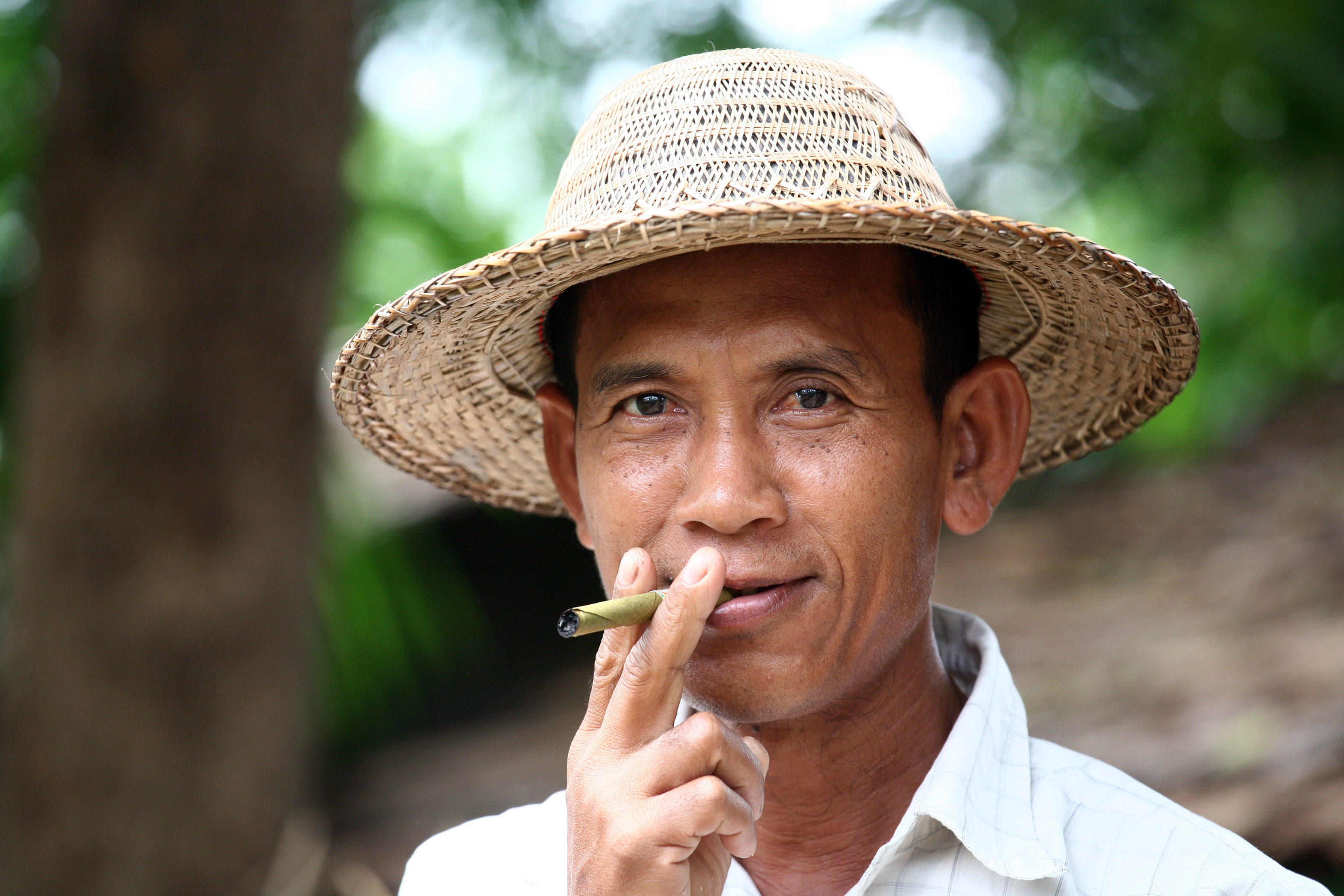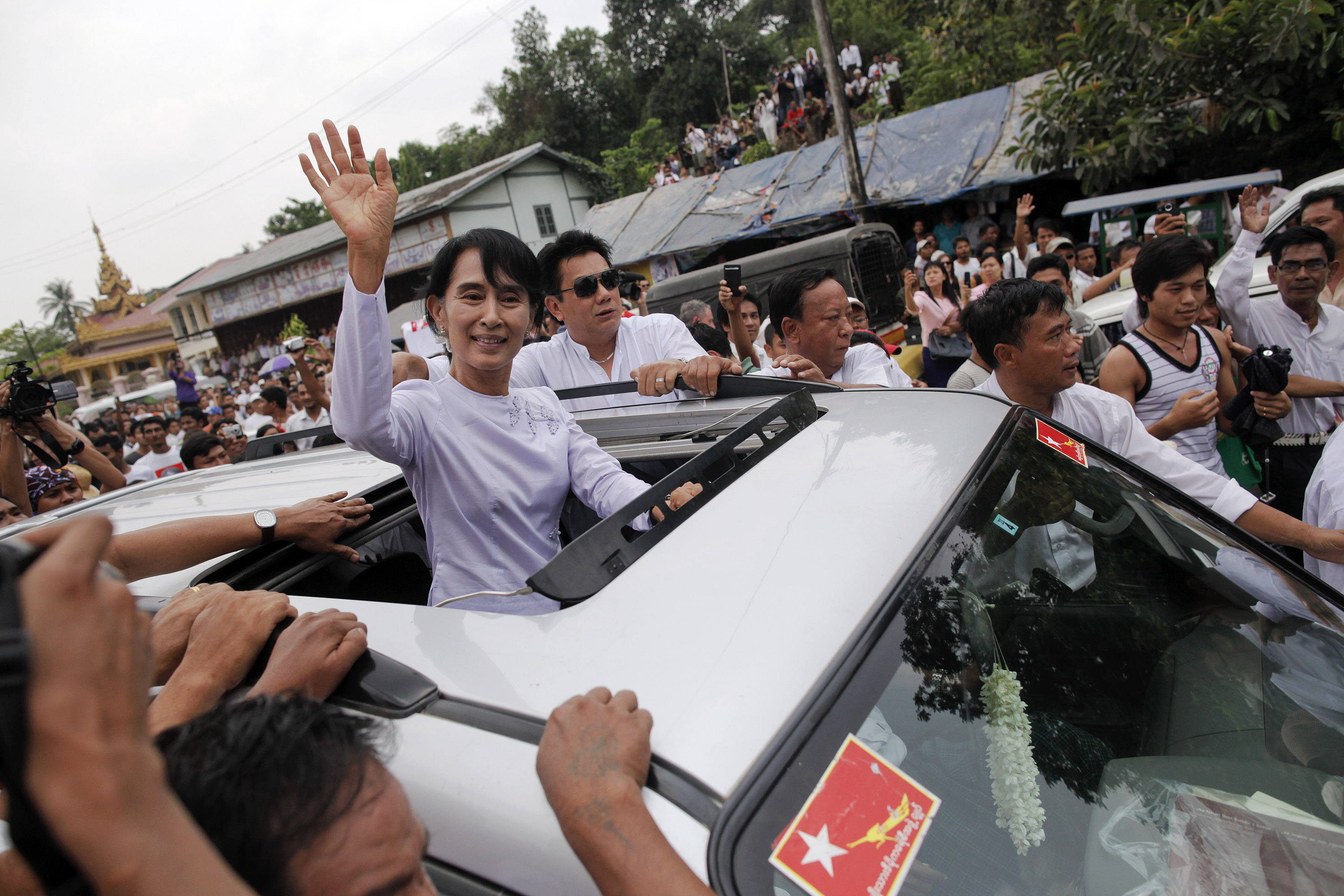Suu Kyi visits Swiss parliament

Aung San Suu Kyi, the icon of Myanmar’s democracy movement, visited the Swiss parliament on Friday morning, having recovered from a brief indisposition the previous evening which prevented her from attending an official dinner in her honour.
She was given a standing ovation by members of parliament, and outside was greeted by crowds who cheered her and gave her flowers.
Suu Kyi, 66, had been forced to cut short a media conference on Thursday evening because she felt unwell after a long day. She had already warned the journalists waiting to hear her speak that she was very exhausted from her long flight and felt a bit disorientated.
A member of her entourage told the French news agency, AFP, on Friday that she had recovered, although she still had a “little headache”, and that her programme would be “maintained as scheduled”.
However, her doctor in Myanmar said she was worried that Suu Kyi’s packed European tour could take a toll on her health. She is reported to have low blood pressure and to suffer from motion sickness.
Suu Kyi left Switzerland at midday on Friday, flying to Oslo via Frankfurt.
Visit to Bern
Suu Kyi came to Bern from Geneva on Thursday afternoon and had a meeting with Swiss Foreign Minister Didier Burkhalter.
She then managed to make a brief statement to journalists and answer a couple of questions before she collapsed.
She thanked the Swiss for their warm welcome, and said she was pleased at Switzerland’s close cooperation with Myanmar.
“Part of the democratisation process has to be a learning process from established democracies. Of course we will never be the same sort of democracy like Switzerland, because no other democracy is the same as the Swiss democracy. We all develop our own pattern of democracy,” she said.
Asked what she would like Switzerland to do for Myanmar, she stressed the importance of vocational training for young people.
She explained that youth unemployment was a “tremendous problem”, as Burma’s education system had been very weak over the last few decades.
“It is not just a matter of creating jobs but a matter of helping young people to acquire the skills that will enable them to get the jobs that are created with the opening up of the economy.”
“I would like to put that as a priority for Switzerland because I have been very impressed by the Swiss model.”
Responsible investment
She arrived in Switzerland shortly before midnight on Wednesday, on the first leg of a historic visit to Europe which she previously visited 24 years ago.
Her hectic day had started with an address to the United Nations International Labour Organization (ILO) in Geneva, in which she called for “democracy-friendly” investment in Myanmar.
“I would like to call for aid and investment that will strengthen the democratisation process by promoting social and economic progress that is beneficial to political reform,” she told the conference.
Businesses have been keen to invest in the resource-rich southeast Asian nation, since it began easing restrictions on democratic and social freedoms. Eager to compete with China and Japan, European countries in April lifted decades-old sanctions imposed on the junta.
Suu Kyi said she welcomed foreign direct investment that would create jobs and technology transfer, such as in the tourism and financial services sectors and for basic infrastructure, but said special care should be paid to extractive industries.
“We would like potential investors to think of us and not just themselves,” she said.
She urged foreign governments not to allow their firms to do joint ventures with the state-owned oil and gas company The Myanmar Oil and Gas Enterprise (MOGE) until it improved transparency and accountability.
Oil and gas is not the only potential problem area.
“Responsible foreign investment in agro-business could be beneficial with the right precautions taken to protect smallholders,” she added.
Emotional welcome
During her address, she said she had been “profoundly moved” by her welcome in Geneva.
“It’s 30 years since I was last in Geneva. I’m not sure I recognise it, but my heart recognises it, as it recognises that we will be meeting again and again to resolve the problems that pose a threat to the future not just of my country, but to the whole world,” she told the conference.
Her European trip is seen as a gesture to those governments and organisations that supported her peaceful struggle against the military regime of Myanmar’s generals, during which she spent 15 years under house arrest.
She was granted freedom after Myanmar held elections in 2010 and she was elected to parliament in April 2012.
From Switzerland she is due to fly to Oslo where she will formally receive the Nobel Peace Prize that was awarded to her 21 years ago.
Can you forgive?
During her two-week European tour she also plans to visit France and Ireland, where she will be feted by rock band U2 at a concert hosted by the human rights group Amnesty International.
Next week she will stop over in Britain where she will address both houses of parliament and accept an honorary doctorate at Oxford University. Suu Kyi studied and lived in Britain for years, and it is in Myanmar’s former colonial power that she left behind husband Michael Aris and their two sons when she travelled to her homeland in 1988 to nurse her ailing mother.
Aris died of cancer in 1999, having been denied a visa to Myanmar. Suu Kyi had refused to leave the country, fearing she would be permanently exiled by a junta that saw the daughter of Myanmar’s independence hero General Aung San as a threat to its power.
Asked by reporters in Geneva whether she could forgive Myanmar’s rulers for her house arrest and events over the past 24 years she replied: “In some ways I don’t think they really did anything to me… I do not think I have anything to forgive them for.”
Sectarian violence
Her European visit marks a new milestone in the political changes that have swept through the country since decades of military rule ended last year, bringing to power a new quasi-civilian government.
However, wariness remains over the intentions of Myanmar’s President Thein Sein, who retains close ties to the military, and a recent wave of deadly sectarian violence between Buddhists and Muslims in western Myanmar that rights groups say has the potential to escalate.
Suu Kyi expressed concern about the unrest and said laws needed to be enforced to prevent such conflicts from taking place.
“Without the rule of law, such communal strife will only continue,” she told reporters in Geneva.
Switzerland plans to open an embassy in Myanmar in November and to increase its development aid to about SFr25 million ($25.8 million) per year over the next four years.
The government notably acknowledges the country’s great economic potential and its appeal as a tourist destination.
As part of strengthening development cooperation with Myanmar, Switzerland plans to launch programmes on agriculture and food security, as well as vocational training and mine clearing.
It has already lifted all sanctions other than those on military equipment and items that could be used for repression.
November 2010: first elections in 20 years; house arrest of Aung San Suu Kyi ends.
February 2011: Thein Sein becomes the first civilian president after half a century of military rule.
August 2011: the president calls on ethnic minorities to enter into peace talks.
October 2011 and January 2012: hundreds of political prisoners are freed.
April 2012: Aung San Suu Kyi is elected to parliament. Her party, the National League for Democracy, wins 43 of the 44 seats contested.
May 2012: Switzerland winds down some sanctions against Myanmar, following similar action by the European Union and others.
June 2012: Aung San Suu Kyi goes to Thailand for her first trip abroad in 24 years.
June 13-15, 2012: Switzerland is the first European country visited by the opposition leader.

In compliance with the JTI standards
More: SWI swissinfo.ch certified by the Journalism Trust Initiative













You can find an overview of ongoing debates with our journalists here . Please join us!
If you want to start a conversation about a topic raised in this article or want to report factual errors, email us at english@swissinfo.ch.